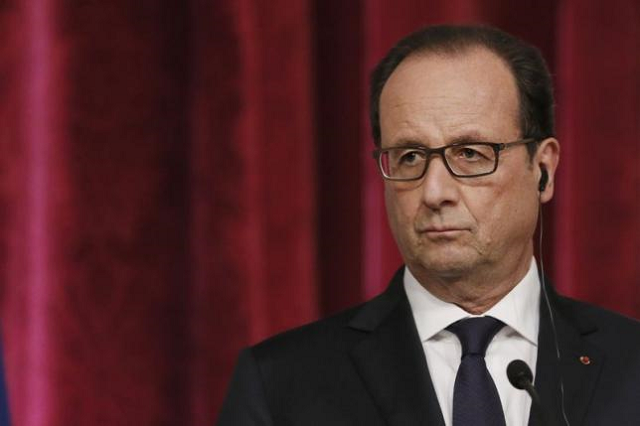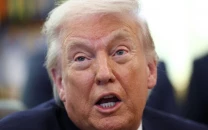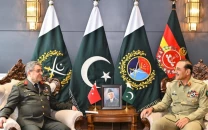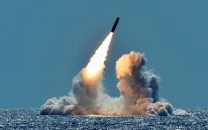Former French president laments fighter jet manufacturing deal with India
Hollande says France given no choice in Dassault deal with Reliance for Rafale fighter jets

The former French leader denied any conflict of interest with Reliance Group.
PHOTO: REUTERS
His comments stoked debate on a subject which has gained significant traction in India in recent weeks, since the opposition Congress party accused Prime Minister Narendra Modi of favouring private conglomerate Reliance Group over a public company in the aircraft deal.
India, China agree to expand military ties after defence talks
India's opposition party alleges Modi gave preferential treatment to industrialist Anil Ambani, the billionaire chairman of Reliance Group, to the detriment of state-run Hindustan Aeronautics Limited (HAL).
Officials in India and France say aircraft manufacturer Dassault had freely chosen to partner with Reliance, despite Ambani having no previous experience in the field of aeronautics.
"We did not have a say in that," Hollande told investigative website Mediapart. "It was the Indian government that proposed this service group (Reliance), and Dassault who negotiated with Ambani.
"We did not have a choice, we took the interlocutor who was given to us," added Hollande, who was president of France from 2012-2017.
The former French leader denied any conflict of interest with Reliance Group, which partially financed a film by his girlfriend Julie Gayet in 2016.
Iran puts on 'show of strength' military exercise in Gulf
"That is why, moreover, this group (Reliance) did not have to give me any thanks for anything. I could not even imagine that there was any connection to a film by Julie Gayet."
Contacted by AFP, France's embassy in New Delhi did not comment.
India's defence ministry wrote on Twitter that neither the Indian nor French government "had any say in the commercial decision".
— Ministry of Defence, Government of India (@SpokespersonMoD) September 21, 2018
The French foreign ministry later issued a statement saying that "the sole obligations of the French government were to assure delivery and the quality of the equipment".
Paris was "in no way involved in the choice of Indian industrial partners," the ministry added.
For its part Dassault Aviation said in a statement Friday that the contract was "a government-to-government agreement".
Congress President Rahul Gandhi, who has led the opposition's focus on the deal, wrote: "Thanks to Francois Hollande, we now know he (Modi) personally delivered a deal worth billions of dollars to a bankrupt Anil Ambani."
"The PM has betrayed India. He has dishonoured the blood of our soldiers," Gandhi added.
The PM personally negotiated & changed the #Rafale deal behind closed doors. Thanks to François Hollande, we now know he personally delivered a deal worth billions of dollars to a bankrupt Anil Ambani.
— Rahul Gandhi (@RahulGandhi) September 21, 2018
The PM has betrayed India. He has dishonoured the blood of our soldiers.
Pakistan, Russia ink historic military cooperation pact
Foreign manufacturers obtaining arms contracts in India are obliged to reinvest a portion of the sums collected in India.
Under the Rafale deal, France must spend amounts totalling around half the eight billion euros ($9.4 bn) paid by the Indian government.
Dassault has invested more than 100 million euros in its joint venture with Reliance.
The French firm had spent years negotiating a deal for 126 fighter jets to be manufactured in India with HAL, but talks had stalled.
On taking office, Modi's government cancelled the negotiations and decided to directly purchase 36 Rafale fighter jets made in France.
India -- the world's largest defence importer -- has been investing tens of billions in updating its Soviet-era military hardware to counter long-standing territorial disputes with its nuclear-armed neighbours, including a strengthening China.
It intends to use compensations payments such as in the Rafale deal to create a local defence industry.



















COMMENTS
Comments are moderated and generally will be posted if they are on-topic and not abusive.
For more information, please see our Comments FAQ